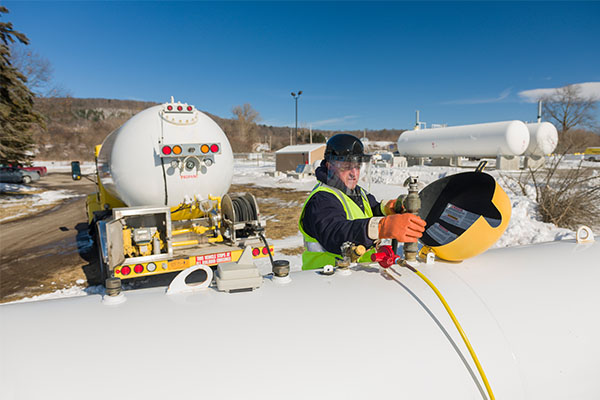Strategies for Propane Retailers: Navigating Supply Challenges
Over the past decade, propane retailers have faced significant challenges and opportunities in managing supply amidst evolving market conditions. Understanding the strategies that have emerged during this period can provide valuable insights into navigating future uncertainties in the propane industry. Adapting to Market Dynamics Propane retailers have adapted their supply strategies to respond to fluctuating… Continue reading Strategies for Propane Retailers: Navigating Supply Challenges
Over the past decade, propane retailers have faced significant challenges and opportunities in managing supply amidst evolving market conditions. Understanding the strategies that have emerged during this period can provide valuable insights into navigating future uncertainties in the propane industry.
Adapting to Market Dynamics
Propane retailers have adapted their supply strategies to respond to fluctuating market dynamics, including:
Diversification of Supply Sources: Retailers have diversified their supply sources to mitigate risks associated with regional supply disruptions or price volatility. This approach involves establishing relationships with multiple suppliers and exploring alternative supply routes.
Investment in Storage Infrastructure: Building and expanding storage facilities has been crucial for retailers to maintain sufficient propane reserves during peak demand seasons and supply disruptions. Strategic storage investments ensure operational resilience and flexibility.
Enhanced Demand Forecasting: Improving demand forecasting capabilities has allowed retailers to better anticipate customer needs and adjust supply strategies accordingly. Advanced analytics and data-driven insights play a pivotal role in optimizing inventory management and distribution logistics.
Leveraging Technology and Innovation
Technological advancements have transformed supply management practices for propane retailers:
Automation and Remote Monitoring: Implementing automated systems and remote monitoring technologies enables real-time tracking of inventory levels, delivery schedules, and storage conditions. This enhances operational efficiency and responsiveness to supply chain fluctuations.
Digital Platforms and Communication: Utilizing digital platforms for supply chain management and communication with suppliers enhances transparency, collaboration, and efficiency. Integrated systems streamline order processing, invoicing, and reporting, improving overall supply chain visibility.
Responding to Regulatory and Environmental Factors
Regulatory compliance and environmental considerations have shaped supply strategies:
Adherence to Safety Standards: Propane retailers prioritize safety standards and regulatory compliance in storage, handling, and transportation practices. This commitment ensures operational safety and mitigates risks associated with regulatory non-compliance.
Environmental Sustainability: Embracing sustainable practices, such as promoting propane as a clean energy solution and reducing carbon emissions, aligns with evolving environmental regulations and consumer preferences. Propane retailers invest in eco-friendly technologies and initiatives to enhance market competitiveness.
Collaborative Approaches and Industry Partnerships
Collaboration within the propane industry has been instrumental in navigating supply challenges:
Industry Partnerships: Collaborative efforts with industry associations, suppliers, and stakeholders facilitate knowledge sharing, best practices adoption, and collective advocacy on policy issues affecting the propane sector.
Strategic Alliances: Forming strategic alliances with suppliers and distributors strengthens supply chain resilience and fosters innovation in propane supply management. Partnerships enable retailers to leverage shared resources and expertise, enhancing market competitiveness.
Looking Ahead
As propane retailers reflect on the past decade’s supply strategies, the focus shifts to preparing for future challenges and opportunities. Continuous adaptation, innovation, and collaboration will remain essential in navigating evolving market dynamics and ensuring sustainable growth in the propane industry.
The strategies adopted by propane retailers over the past years highlight resilience, innovation, and strategic foresight in managing supply challenges. As the industry looks ahead to the future, proactive adaptation and strategic planning will be key to sustaining growth and meeting customer expectations in the coming years.

